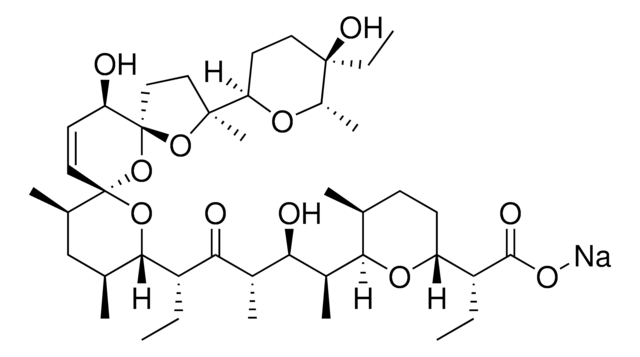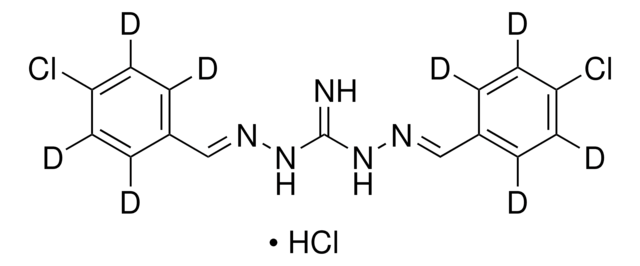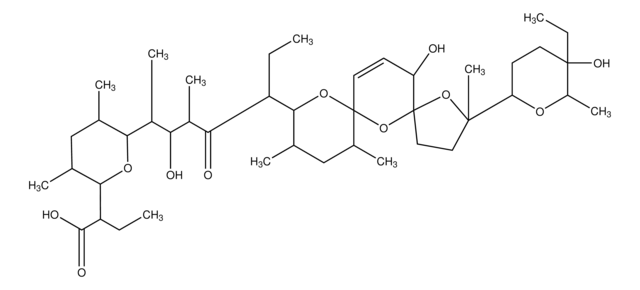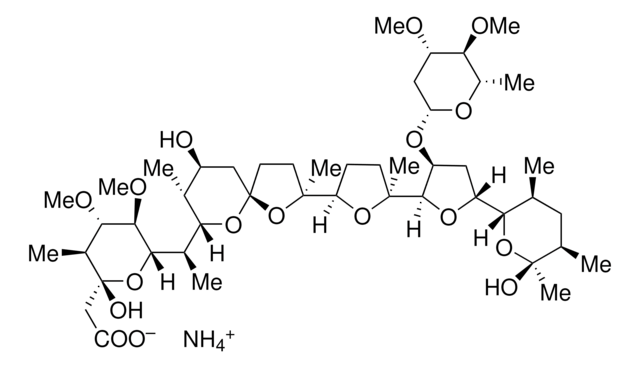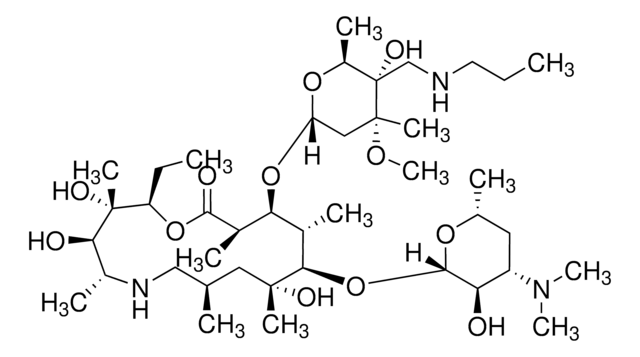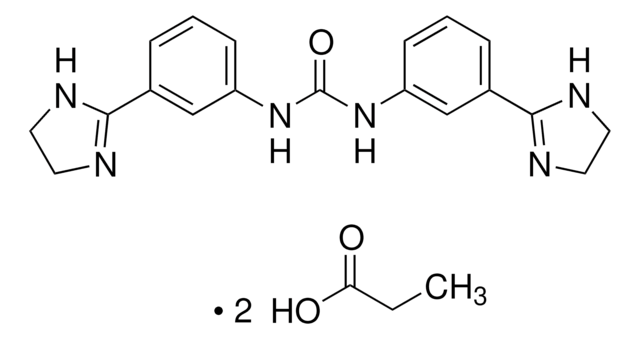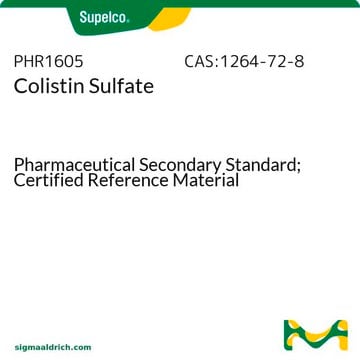33979
Robenidine hydrochloride
VETRANAL®, analytical standard
Sinónimos:
1,3-Bis[(4-chlorobenzylidene)amino]guanidine monohydrochloride
About This Item
Productos recomendados
grade
analytical standard
Quality Level
product line
VETRANAL®
shelf life
limited shelf life, expiry date on the label
technique(s)
HPLC: suitable
gas chromatography (GC): suitable
application(s)
forensics and toxicology
pharmaceutical (small molecule)
format
neat
SMILES string
Cl[H].Clc1ccc(cc1)\C=N\NC(=N)N\N=C\c2ccc(Cl)cc2
InChI
1S/C15H13Cl2N5.ClH/c16-13-5-1-11(2-6-13)9-19-21-15(18)22-20-10-12-3-7-14(17)8-4-12;/h1-10H,(H3,18,21,22);1H/b19-9+,20-10+;
InChI key
LTWIBTYLSRDGHP-HCURTGQUSA-N
¿Está buscando productos similares? Visita Guía de comparación de productos
General description
Application
Legal Information
Related product
signalword
Warning
hcodes
Hazard Classifications
Acute Tox. 4 Oral
Storage Class
11 - Combustible Solids
wgk_germany
WGK 2
flash_point_f
Not applicable
flash_point_c
Not applicable
ppe
dust mask type N95 (US), Eyeshields, Faceshields, Gloves
Elija entre una de las versiones más recientes:
¿Ya tiene este producto?
Encuentre la documentación para los productos que ha comprado recientemente en la Biblioteca de documentos.
Los clientes también vieron
Nuestro equipo de científicos tiene experiencia en todas las áreas de investigación: Ciencias de la vida, Ciencia de los materiales, Síntesis química, Cromatografía, Analítica y muchas otras.
Póngase en contacto con el Servicio técnico